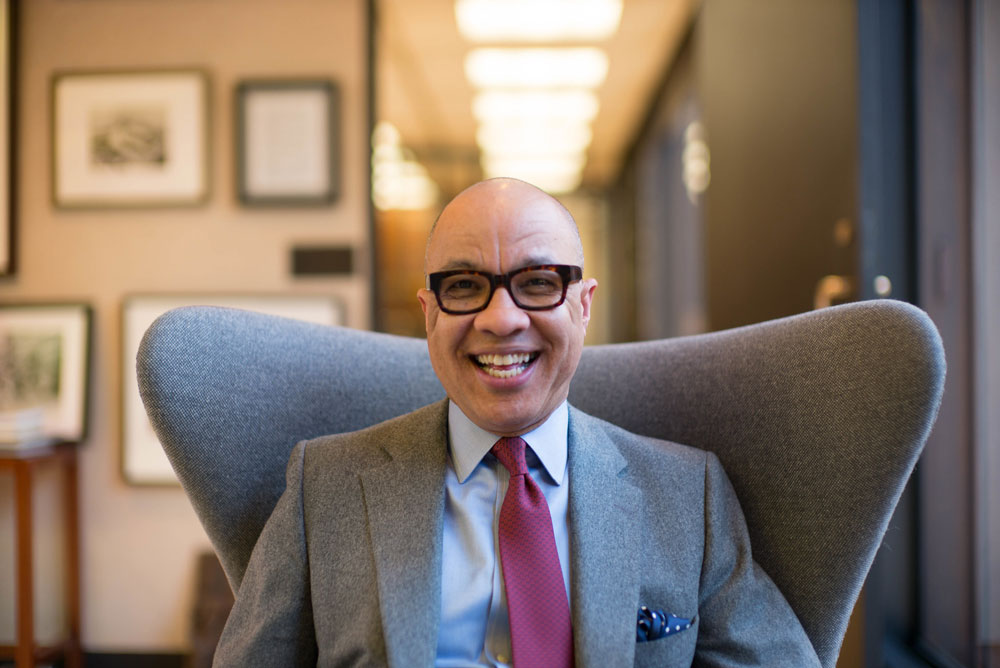
May 30, 2017; Crain’s Detroit
As was announced last year, the Ford Foundation is establishing an office in Detroit from which it can make its grants from a more grounded position. Someone has apparently already been hired to lead that office.
“They will be working from Detroit and working with grantee partners there so we don’t have to have staff parachute in and out,” Walker told Crain’s this week. “I think it’s important because having someone close to the ground, someone working in the city, is a more effective way to do our work.”
Ford’s new Detroit-based program officer will oversee a $15 million annual budget—“the most of any U.S. city,” according to Walker. But that will be leveraged with its regular $8.5 million annual payments into the Grand Bargain Fund and the use of some of its new $1 billion fund for mission-related investments (MRI). Walker says that the mass of the MRI in Detroit will be focused on affordable housing, but at level that has yet to emerge. “Rather than setting an artificial target, we want to generate as much demand as we can,” Walker told Crain’s.
This move by the Ford Foundation to solidify a geographic presence in Detroit follows a number of other “signifying” actions on the part of Ford, including a board meeting held in Detroit in 2015. It will apparently collocate its new office with another foundation.
The role of philanthropy in Detroit during and since the city’s bankruptcy has been both active and somewhat controversial, as Rick Cohen so ably documented in an NPQ article published in 2016. The Ford Foundation was a major investor in Detroit’s Grand Bargain, with a total commitment of $125 million.
Ford, of course, has a special relationship with Detroit, the Motor City. An article last year in the New Yorker noted that when Ford Foundation launched in 1936 with a gift of $25,000, it was a small, local foundation. It wasn’t until 1947, when Henry Ford died and willed it “a large chunk of the nonvoting stock of the Ford Motor Company,” like so many others in order to avoid paying hundreds of millions of dollars in taxes, that Ford became the world’s largest philanthropic foundation, almost overnight.
Sign up for our free newsletters
Subscribe to NPQ's newsletters to have our top stories delivered directly to your inbox.
By signing up, you agree to our privacy policy and terms of use, and to receive messages from NPQ and our partners.
Though Henry was an archconservative, the foundation took on a left-leaning stance. In an interview from the Ford archives, Henry Ford II, Edsel’s son, said,
It got all mixed up at going off in all directions, getting into all kinds of nutty liberal causes… I mean, you know, Mike [Mitchell] Sviridoff; Christ! he’s off doing nutty things with [Cesar] Chavez and all. We got into a lot of trouble back in the old days in the South where the Ford dealers were bitching like hell about all the things we were doing down South. And when you’re in the consumer business and you’ve also got the Foundation around your neck, you’re in trouble almost day and night because they’re always doing something that irritates somebody and why irritate somebody that’s going to buy your product?
The relationship between the Ford Foundation and the Ford family deteriorated, and in 1977 they parted ways when Henry Ford II severed the family’s tie with the foundation by resigning from the foundation’s board. When Walker joined the Ford Foundation as president in 2013 (covered by NPQ), he wrote a letter to Edsel’s son’s widow, “Mrs. William Clay Ford, Sr., the former Martha Firestone, of Firestone Tire and Rubber,” in an attempt to reestablish ties.
Crain’s reports that Robert Collier, president and CEO of the Council of Michigan Foundations, said there is real philanthropic support for Ford’s establishment of offices in Detroit. “Having someone who is here is certainly strategically very important as opposed to having someone drop in once a month for a couple of days or having an endless stream of consultants.”
But, as we all know, being local does not guarantee grounded strategies. Creating close partnerships with the right community groups may do so, however—a truth that Walker knows first hand as a result of his own work in community development. He discusses this and other very consistent generators of this strategy here.
Walker will detail the foundation’s work in Detroit in a speech tomorrow at the Detroit Regional Chamber’s Mackinac Policy Conference on Mackinac Island. If nothing else, it is clear that the Ford Foundation has pursued its strategy very consistently when it comes to Detroit, though with plenty of room to be shaped by local nonprofits and residents.—Cyndi Suarez and Ruth McCambridge













